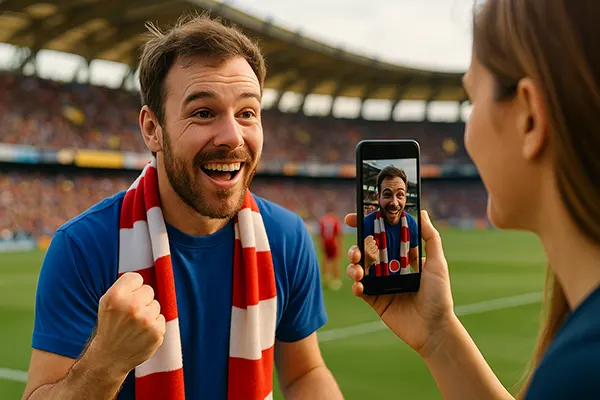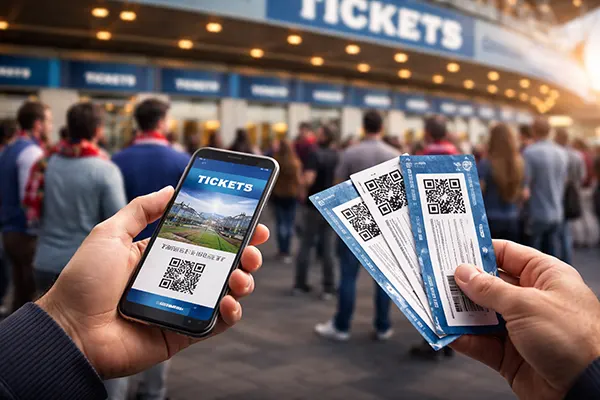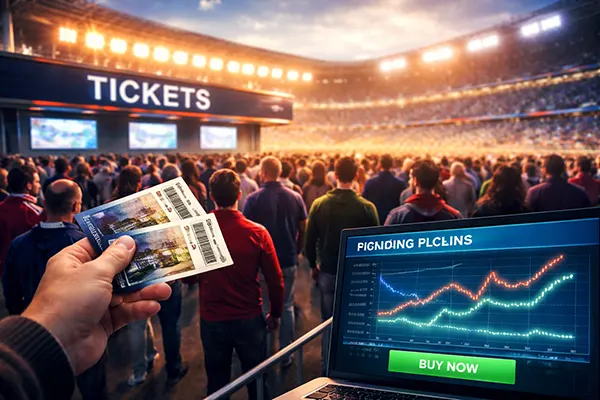
Zero-Party Data in Sports Marketing: How Brands Collect Voluntary Fan Insights
As traditional data collection methods continue to lose effectiveness due to stricter privacy laws and user scepticism, Zero-Party Data (ZPD) emerges as a new ethical and strategic solution in sports marketing. This type of data is provided directly by fans — voluntarily and consciously — making it uniquely powerful and trustworthy.
In the sports industry, where fan engagement and emotional loyalty are critical, ZPD offers an opportunity to tailor campaigns and products based on actual preferences. It empowers marketing teams to build more relevant experiences without relying on intrusive tracking methods.
By actively asking fans for their input via polls, interactive quizzes, and personalisation tools, brands obtain accurate, real-time insights that boost relevance and strengthen brand-fan relationships in an era increasingly dominated by consent-first strategies.
How Sports Brands Collect Zero-Party Data
Modern sports organisations use a range of interactive and gamified tools to encourage fans to share their data willingly. These include surveys during matchday broadcasts, feedback forms in apps, and loyalty programme preferences. The key is transparency — fans know what data they are providing and why.
For example, a football club might ask supporters to vote on next season’s kit or choose their ideal matchday playlist. In return, fans feel more connected to the club and are more likely to opt-in for marketing communication tailored to their interests.
Other techniques include quizzes that help fans discover which player they resemble most or prediction contests before games. These formats are entertaining yet valuable, producing high-quality data while deepening fan involvement.
Benefits of Transparency and Value Exchange
Fans are increasingly cautious about how their data is used. With ZPD, the process is entirely voluntary, reinforcing a sense of control and trust. Fans provide data in exchange for a personalised experience, making the process feel like a fair trade rather than exploitation.
Brands that master this value exchange — offering exclusive content, customised merchandise offers or behind-the-scenes access — see stronger loyalty metrics and higher conversion rates. This trust-first approach also reduces unsubscribe rates and strengthens long-term engagement.
By centring fan preferences and offering a clear reason to share information, brands not only comply with regulations but also foster relationships rooted in mutual respect and transparency.
Why Zero-Party Data Is the Future of Personalisation
As third-party cookies continue to phase out and first-party data becomes harder to scale, ZPD stands out as a sustainable and scalable solution. It meets the demand for hyper-personalised content while respecting privacy — a balance that today’s sports fans expect.
Because ZPD comes directly from fans, it is often more accurate and nuanced than inferred data. This allows brands to build detailed fan personas, segment audiences meaningfully, and deliver content that genuinely resonates on an individual level.
Moreover, ZPD isn’t affected by browser restrictions or tracking limitations, making it a future-proof strategy for clubs, leagues, and sponsors who want to stay ahead in a privacy-first digital world.
Compliance with GDPR and Global Standards
Zero-party data collection aligns perfectly with the principles of GDPR and other privacy laws. Since fans willingly provide their information and understand its purpose, brands eliminate ambiguity and legal risk associated with passive tracking.
This approach minimises the need for complex consent mechanisms and reduces the likelihood of regulatory breaches. It also demonstrates brand integrity and ethical handling of personal data — increasingly important in public perception.
Transparency, consent, and clear value propositions are not just regulatory requirements but also components of modern brand reputation. ZPD satisfies all three, offering marketers peace of mind and legal clarity.

Practical Implementation in Sports Marketing
To successfully implement ZPD, sports marketers must focus on design, timing, and incentives. Questions must be relevant, simple, and enjoyable — never burdensome. Gamification and emotional hooks are essential for capturing attention without fatiguing the user.
Timing also matters: collecting data during moments of peak engagement, such as just before kick-off or after a major win, yields better participation and accuracy. Fans are more likely to respond when emotionally invested.
Finally, the incentive should be meaningful but not manipulative. A personalised video from a favourite player or early access to match tickets can drive far more participation than generic discounts or giveaways.
Examples from Leading Clubs and Leagues
Top football clubs like Manchester City and Bayern Munich have successfully used ZPD in fan engagement. Through tailored polls and interactive content, they’ve gathered insights that inform not only digital content but also product development and sponsorship activations.
Major leagues such as the NBA and Premier League have integrated ZPD into their apps, allowing fans to set preferences for notifications, content types, and merchandise categories. This data guides more relevant push notifications and curated offers.
Even smaller clubs benefit — ZPD levels the playing field. Without needing vast budgets, local teams can use simple surveys and social media quizzes to build direct fan relationships and gather data they own and control.
Last posts
-
 Communicating Ticket Prices and Rules: How...
Communicating Ticket Prices and Rules: How...
Clear communication about ticket prices and conditions is …
-
 Dynamic ticket pricing without losing fan ...
Dynamic ticket pricing without losing fan ...
Dynamic pricing is now common across sport and …
-
 Creator Partnership Economics in Sport: Ho...
Creator Partnership Economics in Sport: Ho...
Creator partnerships have become a core line item …
